Bugging In: 12 Eye-Opening Tips
Today, it’s bugging in: 12 eye-opening tips! During Covid, many of us were on lockdown, except to go to the store. But what if we couldn’t leave our homes at all for a much longer period of time? Here are 12 tips for bugging in. By following these tips, you can make sure you and your family are safe and comfortable during a long-term emergency.
I must be clear here, this doesn’t mean you are housebound for years, but we may not have access to stores, pharmacies, or gas stations for extended periods. Forget the electric cars, with power outages they won’t be able to be charged. I hope this never happens, but I think it may be a reality for some areas sooner than later that we have some longer-term stay-at-home situations. No one knows for sure, but it’s certainly better to be properly prepared.
If you haven’t purchased this book, I highly recommend both of these. “Prepare Your Family For Survival” and “Bugging In”
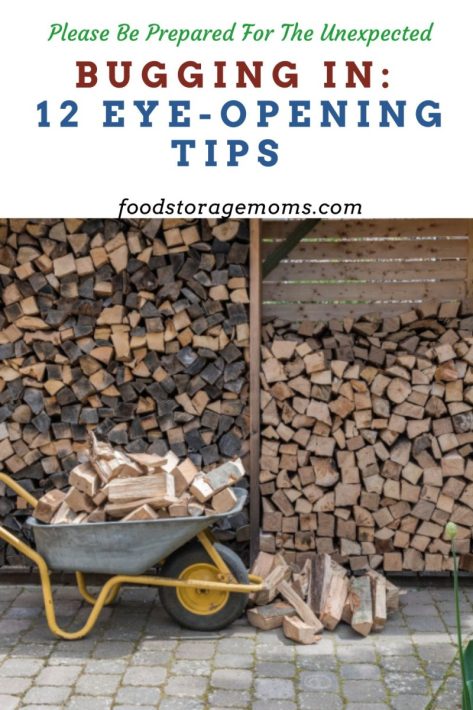
Bugging in: 12 Eye-Opening Tips
What is a Long-Term Emergency?
A long-term emergency is any type of emergency that lasts for an extended period of time. This can include natural disasters like hurricanes or floods, man-made disasters like terrorist attacks or nuclear accidents, and even personal crises like illness, job loss, or other circumstances.
Regardless of the cause or survival situation, a long-term emergency can have a major impact on your life, both in the short-term and the long-term.
In the short term, if a disaster strikes, you may need to deal with things like evacuation, relocating to a new area, or living without basic necessities like electricity or running water. In the long term, you may need to deal with the psychological fallout from the experience, as well as the financial impact.
If you find yourself in a long-term emergency situation, it’s important to stay calm and focused and to make sure you have a plan in place to help you get through it.
What Could Cause You Have to Bug In?
This is a question I’ve been thinking about lately. What could happen that would make me have to bug in for an extended period of time? I can think of a few possibilities:
- First, what if there was a global pandemic that made it unsafe to leave your home?
- Second, what if there was a natural disaster that destroyed all the infrastructure in your area?
- Third, what if there was a civil war or another societal collapse that made it too dangerous to venture outside?
- Fourth, what if our power grids were wiped out? If you haven’t read Ted Koppel’s book, you need to. “Lights Out”
These are all scenarios that could conceivably force me to hunker down and ride out the storm for an extended period of time. Of course, I hope none of these things ever come to pass, but it’s always good to be prepared for the worst. There are many worst-case scenarios, it is important to consider what may affect you and your family and prepare accordingly.
12 Tips For Bugging In
Whatever the reason, if you’re stuck bugging in for the long haul, there are a few things you’ll need to do to survive. Although preparing to bug in for a few years may seem a little ludicrous, a good rule of thumb is to try to be prepared for long-term emergencies that could last longer than a few days, weeks, or months.
1. Stockpile Survival Supplies
This is probably the most important thing you can do to prepare for a long-term emergency. You’ll need to have enough food, water, and medical supplies to last you for at least several months, if not longer.
2. Fortify Your Home
In a long-term emergency situation, your home will be your base of operations for shelter and survival. You’ll need to make sure it’s as safe and secure as possible. This means fortifying the doors and windows, stocking up on self-defense supplies, and having a backup plan in place in case you need to evacuate.
3. Prepare for Ongoing Human Waste Disposal
If you’re going to be stuck inside for an extended period of time, you’ll need to have a plan for disposing of your waste. This means having a septic system in place, or at least a large supply of garbage bags and bleach. Proper Waste Disposal During an Emergency is crucial to survival. Having a supply of toilet paper will also be essential. A bucket, water, shovel, dirt to cover things?
4. Know What to do When Supplies Run Out
Sustainment is the name of the game. You can stockpile enough water storage and food supply for a number of years, but it’s not realistic. Instead, you need to know how to sustain yourself long-term. This means learning how to grow your own food, purify water, and generate power.
5. Heating and Power are Important
You’ll need to have a plan for staying warm in the winter due to heat loss, and cool in the summer when you can’t run the AC. This means having a backup power source and a way to insulate your home. Here are some things to consider:
- Temporary wood stove
- Kerosene heaters
- Portable propane heater
- In-home fireplace
- Hot water heater
I have always found that it’s easier to deal with cold weather because you can use layers of clothing or blankets. Whereas if it is hot, how do you cool things down? Having a generator that can run a full air conditioning system is expecting a lot. Here are a few suggestions to stay cool:
- Frogg Toggs and Mission Cooling Scarves
- Put a cool and wet cloth around your neck or head.
- Install screens so you can open windows for ventilation.
- Consider special screens that block the sun on the sun-facing side of your house, depending on the season.
- Small battery-operated fans.
- If you have a basement, spend more time there because they tend to be cooler and more consistent in temperature.
6. Know How to Cook Without Power
If the power goes out, you’ll need to know how to cook without it. This means learning how to use a camp stove or a solar oven. Your barbecue will not be enough, trust me on that one. I’ve used a butane stove for extended periods. I was surprised at how well it worked on tables and countertops. Storing fuel is an issue, but one you can handle with some planning.
7. Learn Self-defense
In a long-term emergency situation, you may need to defend yourself against looters or other criminals. This means learning how to use firearms and other weapons. You should also consider taking a self-defense class. Having a variety of ways to protect you and your family will be of utmost importance. I recommend having firearms, and pepper spray on hand. Be sure and check your local laws regarding pepper spray.
8. Homesteading is Best for Long-term Survival
If you really want to be prepared for a long-term emergency, you should learn how to homestead. This means learning how to grow your own food, generate your own power, and live off the grid.
9. Start Stockpiling Now
The best time to start prepping for a long-term emergency is before it happens. That way, you can gradually build up your supplies and fortify your home without having to do it all at once.
Start with the basics like food and water, then move on to more advanced items like generators and solar ovens. The problem with generators is the fuel needed, so long term, you may not be able to count on those expensive generators.
The most important thing is to have a plan in place and to start preparing now. With some research and planning, you can be prepared for so many kinds of emergencies.
10. Stay Informed
In a long-term emergency, information is power. You’ll need to stay up-to-date on what’s happening both in your local area and around the world. This means having a reliable source of news and information, whether that’s a radio, TV, or the internet.
11. Stay Healthy
In a long-term emergency situation, your health will be your number one priority. This means eating healthy, exercising regularly, and getting enough rest. It also means having a good supply of medical supplies on hand, as well as a plan in place in case you or someone in your family gets sick.
12. Stay Positive
A long-term emergency can be a difficult and stressful experience. It’s important to stay positive and to focus on the things that are important to you and that you can control. These focus areas can be anything from your family, to your religion, to your hobbies, and to physical exercise. Whatever it is, holding onto it will help you get through the tough times.
Checklist for Long-term Bugging In
The following is a checklist of items you’ll need to survive if you’re stuck bugging in for an extended period of time:
- Food and water for at least 3 months for everyone in your home
- First aid kit
- A way to purify water
- Non-perishable food
- A way to cook without power
- Heating and cooling supplies
- Generator
- Sun oven
- Radio
- Personal hygiene supplies
- 72-hour kit or bug-out bag, ready if needed
What is the difference between bugging in and bugging out?
The difference between the two is basically staying at home (bugging in) and bugging out would be leaving your home to find a safer location.
What are some fun activities to have available in case I have to bug in?
Every family is different, and so the items they need to keep their family entertained would vary. Board games, art supplies, card games, and puzzles are some good examples to consider. Having books on hand is important if members like to read. A battery-based radio can also provide some entertainment, but also keeps the family informed.
What are some crucial means of communication if you had to bug in for an extended period of time?
If any of the essential services that we need to survive are down, such as grocery stores, gas stations, and pharmacies, then walkie-talkies may work, but ham radios would be a better choice. Cell phone service and be a challenge, so you can’t rely on it as your sole means to communicate. If they do work, you’ll need a way to charge them up. Solar panels are a good option.
What is the best option to store water for a long-term emergency vs a short-term emergency?
I highly recommend visiting the following posts for the best recommendations on The Best Water Storage Containers, Water Storage-How Much Do You Really Need? Why You Need Emergency Water Storage and Emergency Water Storage How to Store It.
Besides storing water, food, and medical supplies, what are some other supplies I should store if I had to bug in?
Preppers have a lot of great supplies on hand in case of any type of emergency! Water, food, and medical supplies are essential for survival. In the event that you would need to boil water, pots and pans, along with a source of heat, such as a butane stove, would be needed. Batteries, bartering items, blankets, and warm coats are just a few survival items that I recommend. Please visit this post for an extensive list of Pandemic Supplies You Will Need For Survival.
Final Word
No one knows what the future holds, but by following these tips, you can be prepared for anything. So start stockpiling, fortifying your home, and getting ready for the long haul. Because in a long-term emergency situation, it’s not about surviving for a few days or weeks. It’s about surviving and being as self-reliant for as long as it takes. It is best to find a long-term solution that fits your and your family’s needs. May God Bless this world, Linda
Copyright Images: Stacked Firewood AdobeStock_354268774 by Daniela Baumann

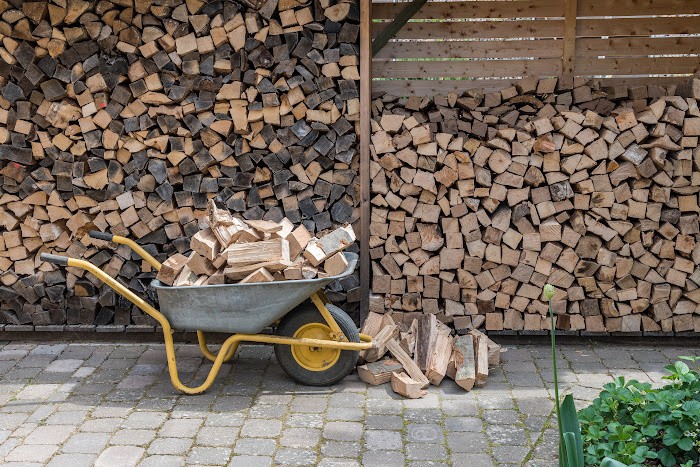


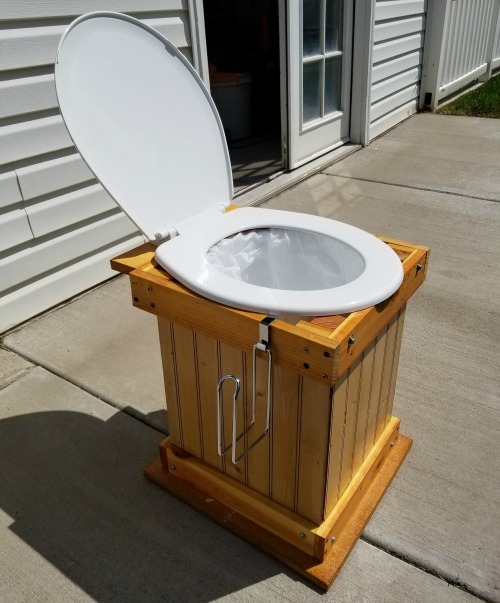

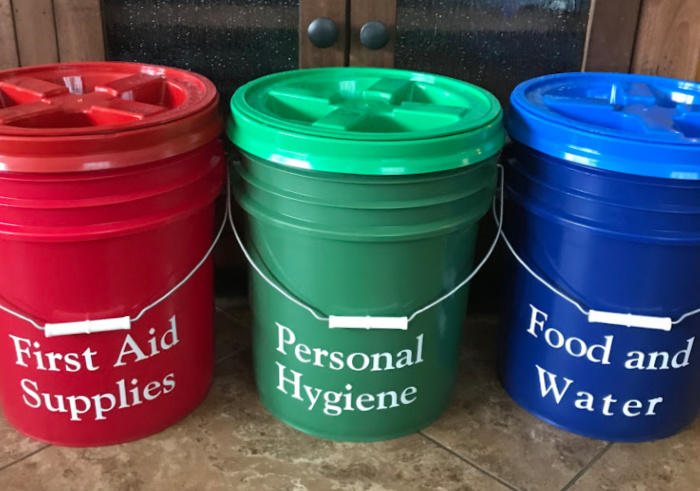




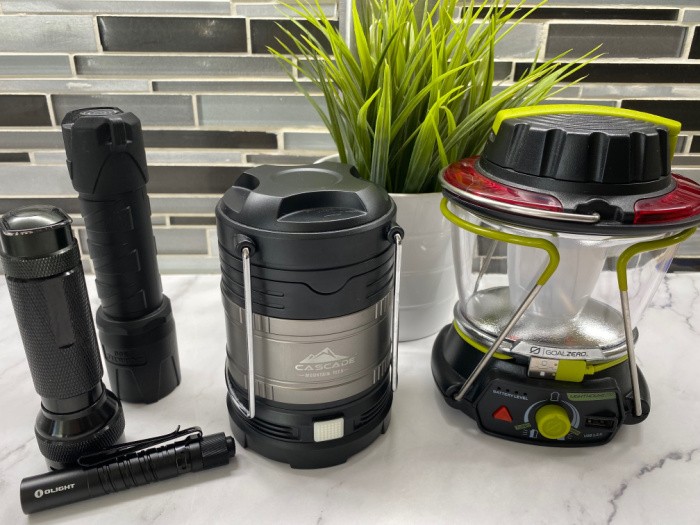

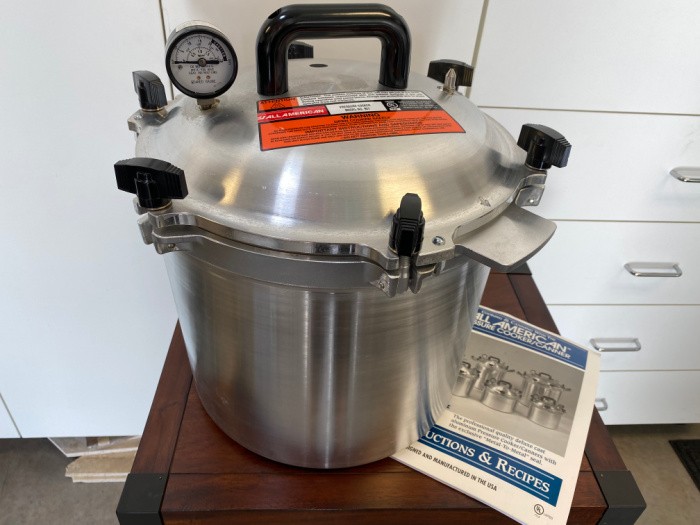




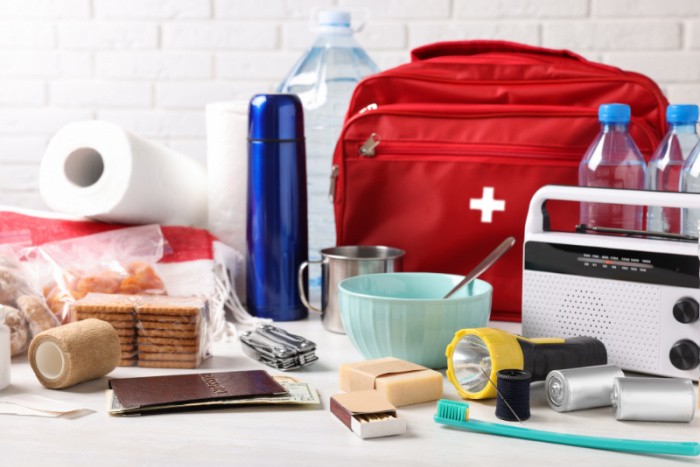

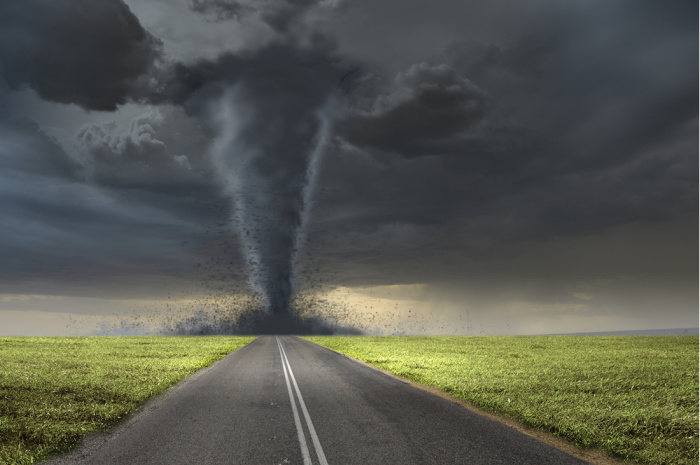


Fortify your home but don’t plan your entire defense around it. You let the fight get into the house you’ve lost.
In fortifying the home there’s a fine line between looking like you’ve got your stuff together and looking like you’ve got something worth fighting for to take.
There are plenty of places you can look at like South Africa, Venezuela etc for ideas
The simplest is a fence. Why or where Americans got the idea that an open front yard is best is beyond my comprehension.
Hi Matt, great reminder. I have a sister that bought a home in Las Vegas that has these “roll-down” deals on every window like armored covers. I feel like it tells the world, “I have stuff you can steal”! Funny, not funny. I agree don’t give people the notion you have stuff they want to steal. As far as the window coverings, they are useless in my mind. If someone wants to get into your home, because you have broadcasted “I have stuff” they can blow a hole in the side of your home. Just saying in my humble opinion, nothing will stop the looters. It may slow them down. Linds
Unless I have a humongous fortification system of some sort, the “bad guys” will be able to get into my house-any house, really. I can’t get enough sheets of plywood/boards on my windows (2 stories) of which they could probably just kick it in anyhow. Guns only go so far. Board off the door? they’ll just kick in “beside” it! Remember the movie with Kurt Russell and Ray Liotta, “Unlawful Entry” ?? Ray Liotta was the bad guy and Kurt Russell the cop. Ray Liotta got into the house completely undetected through the skylights! Yup, alot of people have those too. Zombies don’t typically climb but bad guys do/can! Definitely a point of entry that’s hard to defend. Still, I’m very glad my husband and I have firearms/ammo.
We’ll do the best we can but it certainly won’t be foolproof in any case of chaos or anarchy.
HI Robbie, I hear you on the breaking-in! We can only do what we can do. We have to stay positive and be prepared ahead of time. It is what is. Linda
Linda, your article is 24 karat Gold. There are three basic realms of thought on home defense. Look worthless is one. There were people in Venezuela who avoided being looted by scattering junk in their yards, singeing the outside of their home so it would look fire damaged, and kicking in their own their front doors. They looked as if they’d already been looted. I’m not sure about this approach as it could invite both four-legged and two-legged animals inside.
The other option is to look so well defended, looters would opt for an easier target. We’re talking hurricane shutters like that woman in Las Vegas had, sandbags, etc.
The third option, and the one I prefer, is an armed and patrolling neighborhood watch that can respond to a threat anywhere in the neighborhood, combined with a bit of the second option.
Make no mistake about it. If the long term disaster goes on long enough you, and your neighbors will have to police yourselves against intruders. Makes me glad most of my neighbors are veterans.
All of this assumes looters or rioters are the main threats, but desperate people begging food and supplies for their starving children may well be the greater threat–because instead of violence, they will be appealing to your better nature, your humanity, especially if it was the starving child who came to your door. Could you turn one away?
Hi Ray, thank you for your kind words, my friend. Great ideas to make us look like less than desirable homes to loot, that’s for sure. Hunger and thirsty people and kids can change for the worse. They will become angry, and upset, and then we will see an ugly side of people we may have never seen before, including people we know. You are so right it will not necessarily be a disaster, make a plan NOW, my friends before you are confronted with starving people. Every neighborhood is different, we may think our neighbors will pull together, That sounds wonderful, but I’m not so sure about that. Having former military who understands what is really going on right now in my neighborhood is a dream for me. All I can do is have faith. Linda
My husband made a rocket stove, that he can connect to our grill. That man impresses me.
We had an eye opening experience today that makes us want to bug-in right now. We were at Cabela’s, were certain items are out of stock, but Tom didfind a Leatherman multitoolhe wa ted. . I watched the men and women coming and going. Most are older and not going to win a beauty contest, but they are the people I want near me when TSHTF. Then less than a block away, across from what use to be a high-end mall were five young men and women, complete with tattoos and piercing with signs asking for money. In talking to a friend, she said they are there quite regularly. Sooner or later even the generous people are going to get tired of the people with their hands out. Everywhere we look there are help wanted signs.
You are right about that. We live in the country, our neighbors are mostly older, they know how to garden, can, light a fire, cut wood, make soap, carpenter and so many other skills. They are the people I want near me during tough times. They all know how to shoot, too.
Hi Janet, you are one lucky woman! Linda
Hi Chris, I don’t understand all the jobs available out there for people!! We ate at a restaurant that had a sign “please be patient, we have trouble getting workers”. It was not a fast food place, it was a wonderful Mexican restaurant and a bagel shop! I remember in the 80s there were no jobs, what has changed? I’m baffled. Linda
Hi Janet, squeal! That husband of yours impresses all of us! Way to go! Linda
One item concerns me. I think ramps outside a home, says there is a handicapped or elderly person inside. If we were to need a ramp, our attached garage would allow one that could not be seen when the garage door is closed. Maybe ramps should be in the back and out of sight for safety. Your thoughts?
Good idea.
Hi Chris, great comment. I had a quadriplegic brother-in-law with a ramp out front in his yard. I have no answer for this question, but to push him to back of the yard would have been impossible. Especially when the weather was bad and he had doctor’s visits. Linda